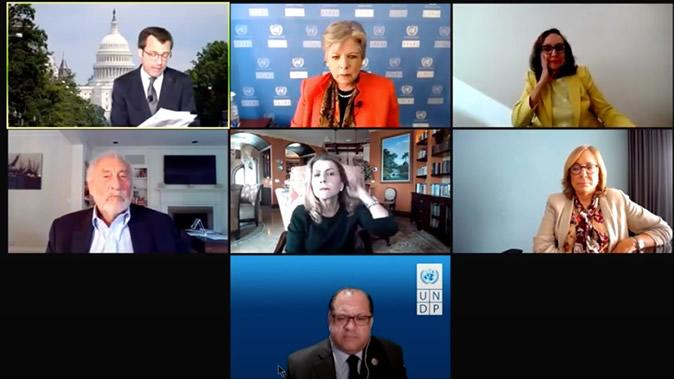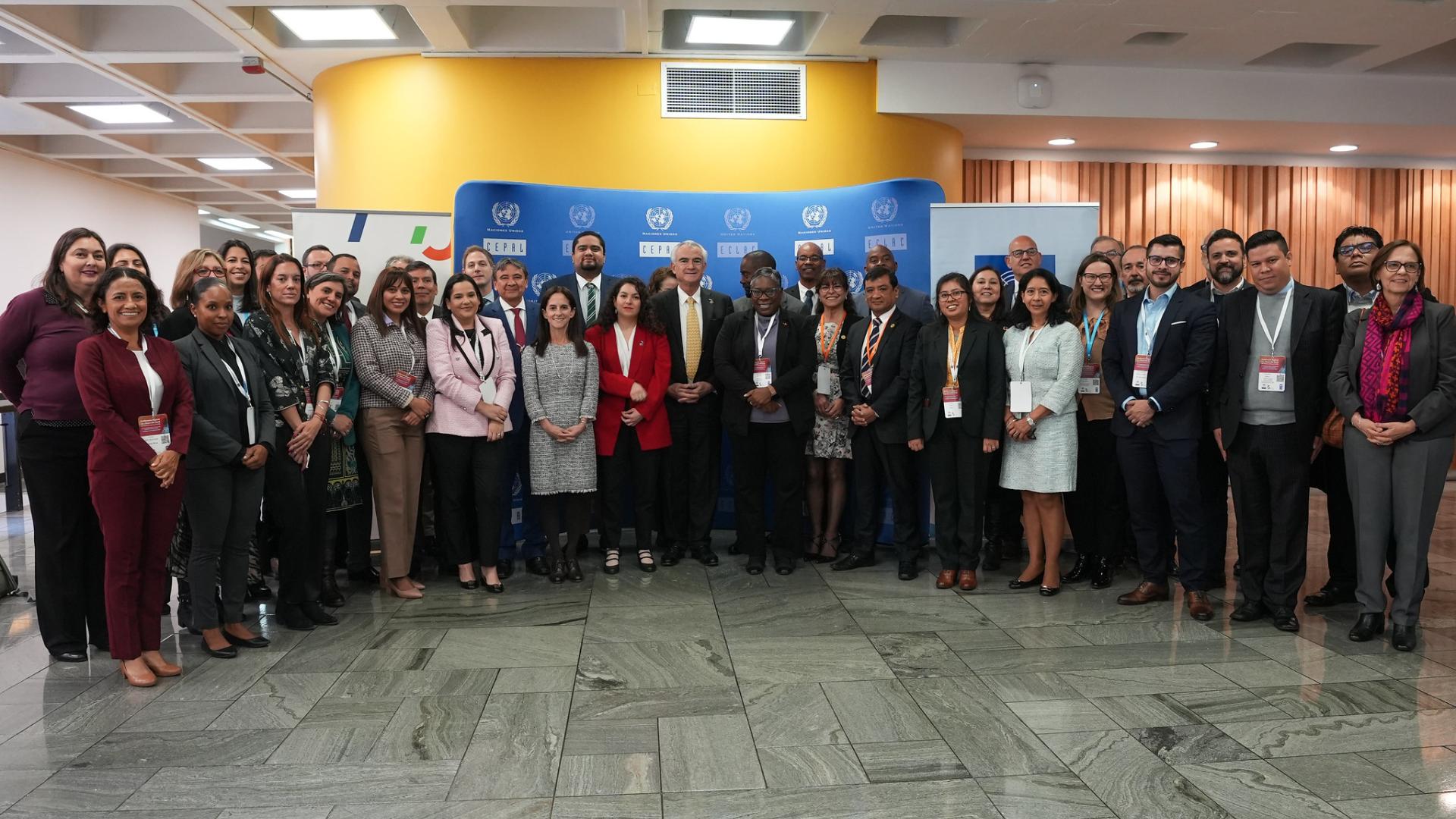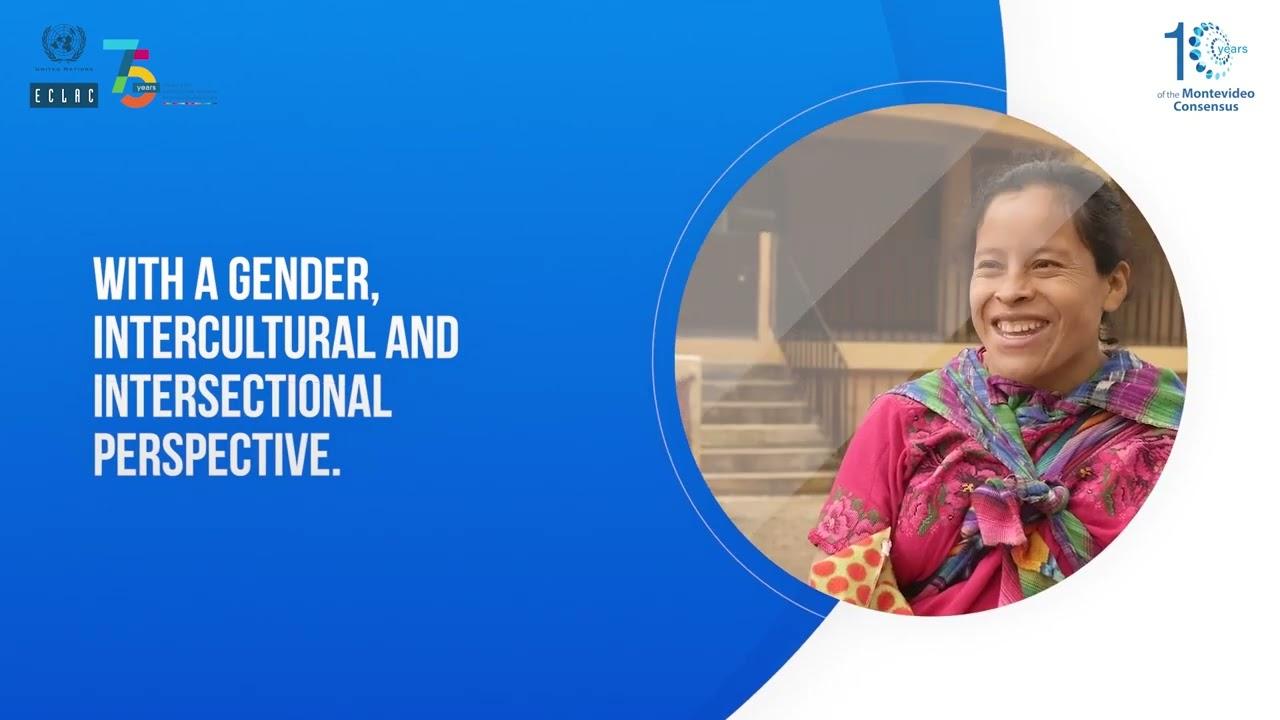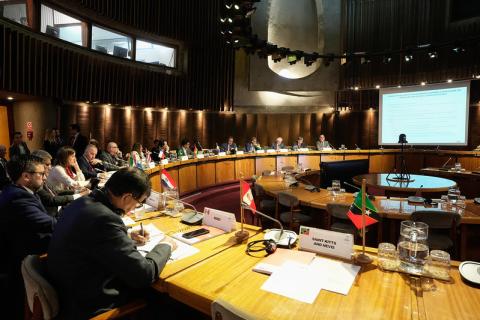Briefing note
The Executive Secretary of the Economic Commission for Latin America and the Caribbean (ECLAC), Alicia Bárcena, called for forging a political, social and economic compact at a national as well as regional and global level, along with a fair, inclusive and progressive social contract, during the 24th Annual Conference of the CAF – Development Bank of Latin America, which was inaugurated virtually today.
ECLAC’s highest authority spoke during “Session I: Economic Recovery from Covid-19 & the Future of the Social Contract in the Americas,” along with Joseph E. Stiglitz, Nobel Laureate in Economics and Columbia University Professor; Carmen Reinhart, Vice President and Chief Economist of the World Bank Group; Rebeca Grynspan, Secretary General of the Secretaría General Iberoamericana (SEGIB); and Paula Santilli, CEO of PepsiCo Latin America. The panel was moderated by Luis Felipe López Calva, Regional Director for Latin America and the Caribbean of the United Nations Development Program (UNDP).
In her remarks, Alicia Bárcena emphasized that the pandemic prompted by the coronavirus (COVID-19) has revealed the fragility of globalization and multilateralism. She noted that this is a systemic crisis affecting both supply and demand, which has shown the urgency of seeking a new development paradigm based on the premise of a big push for economic, social and environmental sustainability – one very much aligned with the 2030 Agenda.
“We need progressive structural change. Rather than talking about rebuilding, we must talk about transformation, to elevate productivity, with innovation, but with equality and sustainability at the center,” she affirmed.
ECLAC’s Executive Secretary stressed that we are facing a critical crossroads, an exceptional time in which what is possible is being redefined.
“We are much more open to altering the status quo and to political change. This is an opportunity. Today it is possible to talk seriously about a basic income, the central role of the State, the importance of a political, social and economic compact at a national as well as regional and global level, and about a fair, inclusive and progressive social contract,” she stated.
In addition, she highlighted the importance of promoting a social and representative State, one that does not favor the elite. She added that Latin America and the Caribbean is tired of the culture of privilege, which means that we must move towards a culture of equality.
“There must also be accountability to keep us from emerging from this crisis more indebted, poorer, hungrier and angrier, and that social anger must be channeled through a representative State that brings all of society together in a broad dialogue,” she indicated.
Alicia Bárcena recalled that the crisis prompted by the COVID-19 pandemic has magnified structural gaps in Latin America and the Caribbean. She stated that the region will undergo a contraction of -9.1% in 2020 – the worst in 100 years – while exports will fall -23% and poverty will end up affecting 230 million people (45 million more).
Some 33 million people will slide into poverty from the middle strata, to the point where 8 out of every 10 people in the region (490 million) are going to need a basic income and universal policies. Inequality will reach 5% on average and unemployment will affect 44 million people. In addition, 2.7 million Micro, Small and Medium-sized Enterprises (MSMEs) will close.
ECLAC’s Executive Secretary added that 40 million households are not connected to nor do they have access to good quality Internet, while 32 million children and adolescents cannot participate in distance learning.
She highlighted that ECLAC has proposed various measures to stimulate demand, based on a big push for the environment and sustainability, with digital infrastructure, greater investment in health, and by underpinning household consumption with a basic income for all people living in poverty – equivalent to one poverty line ($150 dollars per month) – to be complemented by an anti-hunger grant of around $47 dollars a month.
The regional commission also proposes a basic digital basket at an average cost of 1% of GDP, and providing subsidies and longer repayment periods and grace periods for loans to MSMEs, as well as implementing redistributive policies to move towards universal social protection, above all with regard to health. For this to occur, she said, the region needs a much more progressive and effective taxation system that eliminates tax evasion, which amounts to 6.1% of GDP.
The senior United Nations representative underlined that the governments of Latin America and the Caribbean are not going to be able to sustain the fiscal outlays that are needed today. For that reason, international cooperation and multilateral agreements are needed to provide society with global goods such as health, peace, financial stability, climate security and equality.
Finally, Alicia Bárcena called for strengthening regional integration, bolstering intraregional trade (which has plummeted), and supporting the small island states of the Caribbean and Central American countries in particular.



